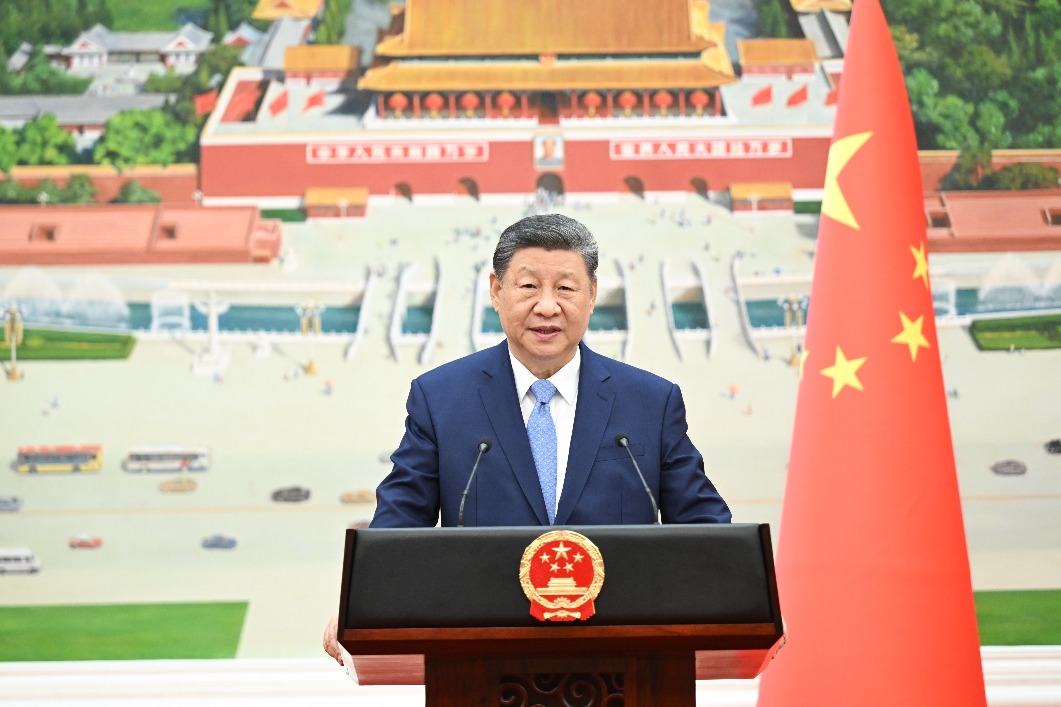US consumers to bear brunt of tariffs

Consumers in the United States could soon be paying more to buy imported goods, economists and retail trade organizations have warned, after President Joe Biden's administration finalized tariff increases on certain products made in China.
"Lower-income US consumers will face the biggest consequences from the new tariff hikes," said Thomas Fullerton, a professor of economics at the University of Texas at El Paso.
"That is because they purchase more merchandise goods than services, and many of those goods are produced in China or contain components produced in China."
The Biden administration first proposed the higher tariffs in May on more than $18 billion worth of products from China. The tariffs are scheduled to come into effect on Sept 27.
The tariffs will rise to 100 percent on electric vehicles, 50 percent on solar cells and 25 percent on steel, lithium-ion batteries, aluminum and key minerals. Increased tariffs on semiconductor chips will take effect over the next two years, the Office of the US Trade Representative said.
The spike is likely to not only drive up costs for Chinese brands that ship to the US, but also for US companies and consumers who buy low-cost goods, experts said.
"A substantial portion, but not all, of the higher costs will be paid by US consumers," Fullerton said. "Chinese companies and US importers will also see reduced profit margins because not all the tariffs will be completely passed on in the form of higher prices."
The National Foreign Trade Council, a trade association in Washington, also expressed concerns about the effect of the tariffs on cash-strapped US households and importers.
"There is no doubt that tariffs raise costs for consumers, and adding new and expanded tariffs will harm working families and imperil America's national and economic security," the council's Vice-President of Global Trade Policy Tiffany Smith told China Daily.
"Tariffs are paid by US importers, not the Chinese government, and represent dollars that are no longer available for these companies to reinvest in innovation, employees or expanding their businesses," she said.
Blunt instruments
"Tariffs are blunt instruments that have not and will not resolve the complex economic challenges that exist between the US and China."
An analysis by the US nonprofit Tax Foundation found that the new tariffs would create an additional tax burden of $3.6 billion on US businesses and consumers.
In 2018, then-president Donald Trump imposed the original tariffs that eventually covered more than $300 billion in imports from China, which later responded with its own tariffs.
Biden not only retained Trump's tariffs, but also increased the rates.
Vice-President Kamala Harris, the Democratic presidential candidate, has not detailed her tariff policy yet.
Trump, however, has been clear.
He recently branded himself a "tariff president" and the US a "tariff nation". Harris criticized his policy as a "sales tax" on households and a "Trump tax".
Trump said it is "not going to be a cost to you" but rather "a cost to another country".
However, numerous economists and retail organizations disagree.
They said if Trump enacts proposed tariffs of 10 to 20 percent on all goods and 60 percent on goods from China, it will ultimately hurt US consumers.
In a study titled "Why Trump's tariff proposals would harm working Americans", researchers Kimberly Clausing and Mary Lovely from the Washington-based Peterson Institute for International Economics argued that the tariffs could end up hurting US families, farmers and exporters the most.
The study said that "in contrast to Trump's frequent, and mistaken, claims that foreigners bear the impact of tariffs, economists have long understood that tariffs burden domestic purchasers of imported goods because imports are the difference between domestic demand and domestic supply and tariff affects both sides of the market".
Lovely, professor emeritus of economics at Syracuse University's Maxwell School of Citizenship and Public Affairs and a senior fellow of the Peterson Institute, said: "The new taxes are economically significant. A household with median income is projected to pay $1,700 more each year in import taxes. The taxes are also regressive in the sense they take a larger share of income from poorer households than richer households."
The American Action Forum, a think tank in Washington, estimated that tariffs proposed by Trump could amount to a $3,900 annual tax increase for a middle-income family.






























